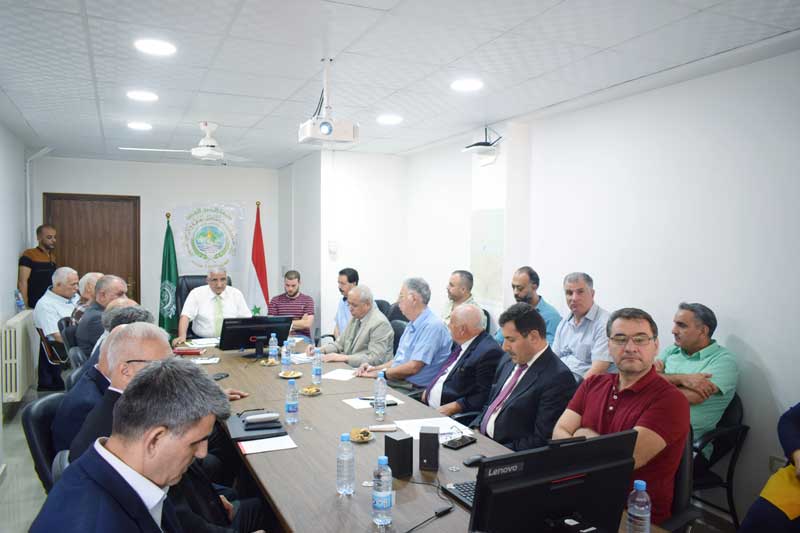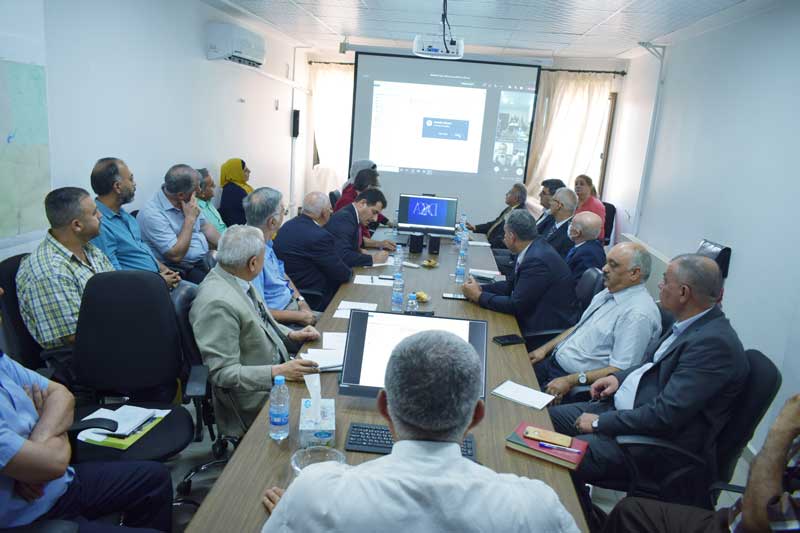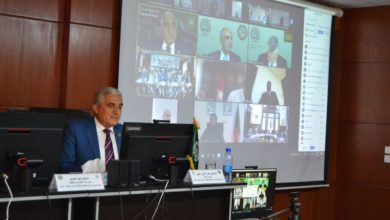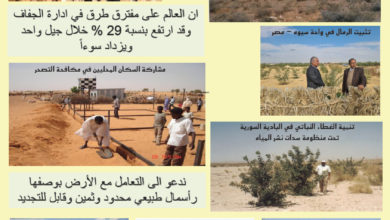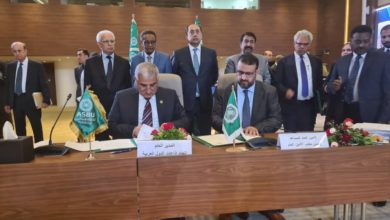A training course on “Camel production and health systems and manufacture of their milk derivatives” at ACSAD.
A training course on “Camel production and health systems and manufacture of their milk derivatives” was opened at the headquarters of the Arab Center for the Studies of Arid Zones and Dryland ACSAD. It was via videoconference within the program of improving the workers’ and technical cadres’ capabilities in the agriculture sector in the Arab countries. It complements the workshop on Corona Virus pandemic impact on the livestock sector in the Arab region; and the climate change impact cycle on animal disease prevalence and its adaptation methods. ACSAD implemented two workshops during the first half of 2021.
In his speech at the opening course, the Director-General of the Arab Center Organization ACSAD, Dr. Nasr Edin Obaid, noted the necessity of synergies to develop and improve the livestock sector in the Arab countries; for its importance in sustainable agriculture development those countries. ACSAD made several achievements in this field, whereby its researchers were able through their research and scientific studies to improve Awas sheep productivity that amount about 294kg in one season; as well as the twins’ percentage raised to 45%. In addition to the improvement of Shami goat productivity of milk to become 497kg in the single-season and twins’ percentage to 77% where it had approached global breeds production.
Dr. Obaid pointed out the pilot role of ACSAD in improving the local strains of sheep and goats in the Arab countries through applying and spreading the artificial insemination technique in small ruminants. Moreover, developing fodder resources, especially the untraditional ones, to bridge the fodder gap through manufacturing units for the integrated fodder production, improving the nutritional value of agricultural waste, and distributing them to some Arab countries like Tunisia, Saudi Arabia, Sudan, and Qatar. In addition to enhancing the technical capacities by implementing training courses in fodder, animal feeding, and preparing fodder budget of Arab countries that depended on it in developing their policies to provide livestock needs.
Dr. Obaid confirmed the importance of this course in highlighting the Camel as a future animal in addressing climate change and its adverse reversals on the livestock sector. Where the number of camels in the Arab world decreased notably because of the weakness of taking care of them, despite being one of the essential protein resources; where ACSAD established a specialized program in researching and developing camels in the Arab countries to improve the income and livelihood of camels breeders by supporting the sustainable development researches to producing camels in the rangeland. Furthermore, improving, facilitating, manufacturing, and marketing their various products. In addition to health care, training the scientific-technical cadres at the levels of small producers and breeders, implementing many projects related to camels in several countries of the region as well.
It should be noted that ACSAD had previously established the Camel Research and Development Network ( CARDN ) in 1991 in cooperating with the International Fund for Agriculture Development ( IFAD ) and the French government with an active contribution by the Islamic Bank for Development to procure equipment to develop the cooperative laboratories in some of CARDN’s member states.
The course continues for two days, 28-29/7/2021 in participating with 46 trainees from seven Arab countries, during which the Center’s experts present various important issues related to the camels’ research program, genetic improvement, care systems, the diseases of camels, and the treatment methods, as well as manufacturing their derivatives to spread the Arab Center’s experience in this field.
